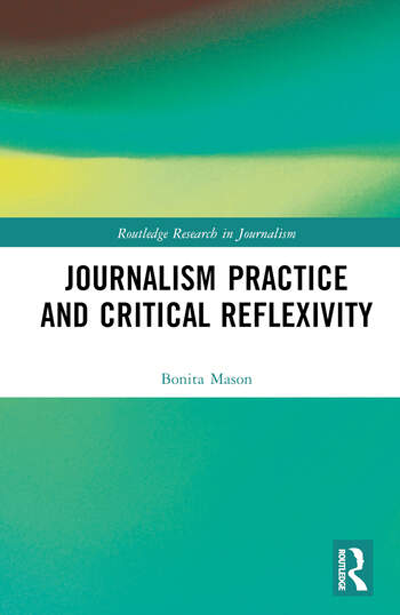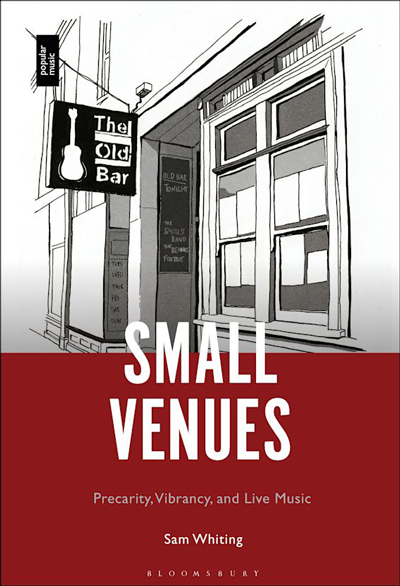The latest books from UniSA researchers
- History from Loss
- Journalism Practice and Critical Reflexivity
- Small Venues: Precarity, Vibrancy and Live Music
History from Loss

Edited by Deputy Vice Chancellor: Research and Enterprise Professor Marnie Hughes-Warrington AO (and Daniel Woolf)
History from Loss: A Global Introduction to Histories written from defeat, colonisation, exile, and imprisonment challenges the common thought that "history is written by the winners" and explores how history-makers in different times and places across the globe have written histories from loss, even when this has come at the threat to their own safety.
A distinguished group of historians from around the globe offer an introduction to different history-makers’ lives and ideas, and important extracts from their works which highlight various meanings of loss: from physical ailments to social ostracism, exile to imprisonment, and from dispossession to potential execution. Throughout the volume, consideration of the information "bubbles" of different times and places helps to show how information has been weaponised to cause harm. In this way, the text helps to put current debates about the biases and weaponisation of platforms such as social media into global and historical perspectives. In combination, the chapters build a picture of history from loss which is global, sustained, and anything but a simple mirror of history made by victors. The volume also includes an introduction and afterword, which draw out the key meanings of history from loss and which offer ideas for further exploration.
History from Loss provides an invaluable resource for students, teachers, and general readers who wish to put current debates on bias, the politicisation of history, and threats to history-makers into global and historical perspectives.
The book is available from Routledge.
Journalism Practice and Critical Reflexivity

By Program Director for Journalism and Professional Writing Dr Bonita Mason, Creative People, Products and Places Research Centre (CP3)
Journalism Practice and Critical Reflexivity is a theoretical- and practice-based response to the crisis of mission and credibility in journalism that is heightened by online and social media. It describes, analyses and offers new approaches and models for critically reflexive journalism research, practice and education.
With specific theoretical and conceptual approaches employed, such as Pierre Bourdieu’s reflexive sociology along with the analytical, practice-based, reflective and narrative techniques of Donald Schön and autoethnography, this book provides possible responses to these crises of purpose and legitimacy, and to transformation, in Western corporate journalism. With journalists working in mainstream media under increasing pressure, the book considers the possibility of either slowing journalism down or having elements of a more reflexive journalism practice set alongside other routine practices. It proposes reciprocity as a core value to guide much investigative and news journalism.
Scholars and practitioners of journalism, researchers and postgraduate students interested in journalism, critical reflexivity and reflective practice in relevant disciplines can apply the concepts and techniques of critical reflexivity in their own research or teaching. Journalists, criminologists and others concerned with Indigenous deaths in custody, prisons, the institutional duty of care, social and/or legal justice and effective government administration will also find the study rewarding.
The book is available from Routledge.
Small Venues: Precarity, Vibrancy and Live Music

By Creative Industries lecturer, Creative People, Products and Places Research Centre (CP3), Dr Sam Whiting
Throughout the history of popular music, the careers of many culturally significant artists and groups began on the small stages of local bars clubs, pubs and discotheques. When the stories of The Beatles, Jimi Hendrix and the New York punk hardcore and post punk scenes are told, iconic venues such as The Cavern, The Marquee and CBGB's serve as the settings of their early chapters. Small live music venues such as these are pivotal in the narratives and history of popular music. However, very few of them survive.
This book focuses on the role of small live music venues as incubators for emerging talent and social hubs for music scene participants. Such venues are grassroots spaces of cultural labour and production that often struggle with issues of financial precarity yet are fundamental to the live music ecology of a city, acting both as platforms for emergent performers and spaces of sociality for local music scenes.
The book is available from Bloomsbury Academic.
Other Stories
- Out with the life coach, in with the chatbot: How AI can support an A1 lifestyle
- Workplace discrimination is rife for pregnant women and working parents
- ‘I feel like I’m suffocating’: what’s driving suicidal thoughts in the Australian construction industry?
- What is dandruff? How do I get rid of it? Why does it keep coming back?
- From the Vice Chancellor: Why we’re in a prime position for the future
- Achievements and Announcements
- Home-grown talent at Rising Sun Pictures
- Pets provide a voice for people with acquired language difficulties
- In Pictures: International Student Welcome Reception
- The latest books from UniSA researchers




